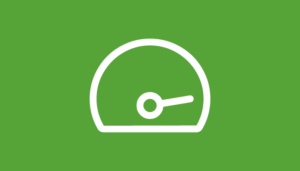Many people see credit cards as financial lifesavers because of their convenience, rewards, and ability to make significant purchases without using cash or dipping into reserves. However, they can be a double-edged sword if not wielded wisely. The real question we should ask ourselves is whether the positive reason for financing with credit is worth the risk. While they help in emergencies, it’s crucial to navigate the murky waters of credit usage and understand the potential pitfalls of this financial tool before making any decision.
The allure of instant gratification makes it easy to spend without sound planning, leading to the misuse of credit. This can cause a host of problems, including skyrocketing interest rates, mounting debt, and increased financial stress. Many people don’t realize that while credit may seem beneficial at a glance, the psychological factors behind spending often result in more hidden and high costs. The risks of debt accumulation grow over time, and the impact on long-term health—both financially and emotionally—can be severe.
To avoid these traps, it’s essential to develop practical tips for responsible usage. This includes considering alternatives before relying on credit for everyday expenses. By gaining a deeper understanding of these dangers, you can protect yourself from financial pitfalls and make more informed choices.
Understanding Credit Card Financing:
Using a credit card for financing can be helpful in some situations, but it’s important to understand when it may not be the best choice. Many people use credit cards to pay for goods and services when they don’t have enough cash upfront. This process involves borrowing money from the issuer with an agreement to repay it later, often with added interest. While this can significantly boost your purchasing power and act as a safety net during emergencies, it also comes with risks that should not be ignored.
If your bank balance is low, using a credit card may seem like an easy fix. However, the costs and responsibilities of credit card debt must be carefully managed. Misusing credit can lead to high interest rates, unexpected fees, and the potential for debt accumulation. That’s why it’s crucial to use credit wisely and recognize which is not a positive reason for relying on it. Recognizing the essential differences between smart and risky credit use helps in avoiding unnecessary debt and financial troubles.
Some people use credit cards beyond their means or for impulse buys, which can create long-term financial problems. Instead, it’s better to use them strategically and ensure they are paid promptly to avoid costly charges. If credit is used without a clear repayment plan, it can lead to financial stress and growing debt. Being aware of the pitfalls of poor spending habits can help you make more informed decisions.
A key part of responsible credit use is finding alternatives before relying too much on credit. Good financial planning includes setting budgets, saving for big purchases, and only using credit when truly needed. These habits will help you maintain a healthier financial future. Understanding how credit works, the risks involved, and the best ways to manage it can prevent unnecessary stress and debt.
The Risks of Using Credit for Essential Expenses:
There are many scenarios where using a credit card for finance seems convenient, but not every situation is a positive reason to do so. It is important to break down some of the most common mistakes people make when using credit. Avoiding financial reality by swiping a card to ignore money problems is a dangerous game. If you keep buying things you can’t afford, you may feel like you are just pushing your problems away, but in reality, you are burying your head in the sand and simply postponing the inevitable trouble.
Many people believe that relying on rewards is a good reason to use credit, but this can backfire. While points and bonuses seem enticing, they can lead to overspending just to earn them. This often nullifies their value, especially when you end up paying high interest charges. The allure of perks should never justify reckless spending, as it often results in unnecessary debt.
Another common issue is impulse buying. Credit cards make it too effortless to spend money on a whim, which can result in unnecessary purchases and stress. It is crucial to differentiate between wants and needs before making a purchase. If an item is not essential, it might be best to wait and reconsider before spending money you might not have later.
Some people end up supplementing their income with a credit card, which is a glaring red flag. This approach creates a vicious cycle of debt that can be hard to escape. Instead of relying on credit, it is better to address shortfalls by budgeting, finding additional income, or adjusting expenses to avoid constant borrowing.
Using a credit card to cover regular expenses is another warning sign. If you frequently use credit for essential living costs like groceries and utilities, it is time to reassess your spending habits. Relying on credit for necessities points to deeper issues that should be handled with a proper budget. While credit cards offer convenience, they should be used with caution. Instead of chasing temporary financial relief, focus on creating a balanced bud
Psychological Factors in Credit Card Use:
The psychology behind credit card use is both fascinating and alarming. It significantly influences how people perceive and manage their finances, sometimes leading to harmful behaviors that cause debt. A key aspect is that plastic money doesn’t feel as real as cash, which can result in overspending. Many studies show that when people use a credit card instead of cash, they are more willing to spend because there is a detachment from tangible money. This makes it feel less painful and easier to justify unnecessary purchases.
Using a credit card can also weaken impulse control, providing immediate gratification for things like gadgets, luxury experiences, or other non-essential buys. The excitement of buying now often overshadows the delayed pain of paying the bill later. This pattern leads to spending beyond one’s means and accumulating debt over time.
Moreover, credit card companies cleverly exploit consumer behavior by offering rewards like points, cashback, travel miles, and other perks. These incentives create a win-win scenario in the mind of the user, but they can trick people into chasing perks while ignoring the hidden costs. If someone cannot afford to pay off their balance in full, the interest and fees can ultimately outweigh any benefits gained from rewards.
Recognizing these psychological factors is crucial to making smarter financial choices. Understanding how credit cards influence spending habits allows people to make informed, rational decisions instead of falling into a trap of mindless spending. Instead of using credit for immediate pleasure, it should be used as a tool to enhance financial health and avoid the pitfalls of unnecessary stress and debt.
By being mindful of these behaviors, individuals can use credit cards responsibly, avoiding reckless spending and focusing on long-term financial stability.
Debt Accumulation and Financial Stress:
Using credit cards without careful planning can lead to serious financial stress. Many people start by carrying a high balance, thinking they will pay it off later. However, this can quickly turn into a cycle of debt accumulation that is challenging to break. The burden of unpaid bills can have a huge impact on mental and physical health, leading to strain in personal relationships and a reduced quality of life.
Even small balances can quickly snowball into large debts due to compounding interest. What seems like a manageable amount at first can become overwhelming if not addressed promptly. This growing financial problem can lead to significant trouble, making it difficult to regain control. That’s why carefully managing your credit cards is crucial to avoid unnecessary financial hardship.
Another major concern is the impact on your credit score. High levels of credit card debt can negatively impact your ability to secure loans, rent an apartment, or even get a job. A lower credit score can limit your future opportunities and make financial recovery even harder. Maintaining a healthy credit score is essential for long-term stability and financial success.
To avoid these issues, it’s important to use credit cards responsibly. Instead of relying on them for everyday expenses, focus on paying off balances on time and staying within your budget. Managing your finances wisely can help you prevent falling into a cycle of debt and ensure a stable financial future.
Tips for Responsible Credit Card Use:
Having a credit card can be helpful, but using it without control can lead to debt accumulation and financial issues. The first step to responsible credit card use is setting a budget. Always plan how much you can afford to spend each month and stick to it. A clear guide for spending helps in ensuring that you don’t overspend on non-essential purchases. Practicing discipline can prevent a quickly growing spiral of financial trouble.
A simple but effective strategy is to pay the full balance on your credit card whenever possible. This approach helps to avoid hefty interest charges that come with unpaid balances. If you only pay the minimum, your debt will keep mounting and growing, making it harder to get out of financial stress. Keeping your credit card balance under control is key to staying financially healthy.
Another smart move is to limit the number of credit cards you have. The more cards you carry, the easier it is to overspend. Try to limit the number of cards in your wallet to reduce temptation. Managing fewer accounts will simplify your financial life, making it easier to track spending and manage payments effectively.
Make it a habit to regularly review your credit card statements. This helps you spot inaccurate charges and be aware of your spending patterns. Staying on top of your budget ensures you know exactly where your money is going. Keeping an eye on your statements can help you avoid unnecessary financial mistakes.
Although credit card rewards can be enticing, don’t let them dictate your spending. The benefits of rewards programs should always outweigh their potential costs. Don’t fall into the trap of spending more just to earn points or cashback, as this can lead to unnecessary debt. Additionally, it’s wise to build an emergency fund instead of relying on credit cards for emergencies. A good financial cushion will help cover unexpected expenses, prevent you from turning to credit in times of need, and reduce the risk of debt accumulation.
Smart Alternatives to Credit Card Financing:
Relying on credit cards to finance purchases can lead to high-interest charges and long-term debt. Instead of using credit cards for every transaction, consider other options that allow you to avoid unnecessary interest and better manage your spending. Choosing the right method can help you stay financially stable and reduce your reliance on borrowed money.
A debit card is a straightforward way to pay for everyday purchases because it pulls money directly from your bank account. This ensures that you only spend what you have, eliminating the risk of accumulating debt. Unlike credit cards, a debit card does not come with high interest rates or hidden fees, making it a safer choice for daily expenses.
Using cash is another powerful tool for budgeting and preventing impulsive purchases. The tangible nature of cash makes people more aware of their spending habits. When you physically hand over money, the transaction feels significant, making it easier to think twice before spending. This method helps control expenses and keeps financial decisions in check.
For larger expenses, personal loans can be a more cost-effective alternative to credit cards. These loans typically offer lower interest rates and come with fixed repayment schedules, making them a great choice for big-ticket items like home improvements or major appliances. By choosing this approach, you can avoid the revolving debt associated with credit cards and pay off your balance within a set time frame.
Building savings is another way to finance future purchases without taking on debt. By setting aside a portion of your income each month, you can create a fund for significant expenses. This method eliminates the need for borrowing, helping you reach your financial goals in a debt-free way. Having savings also provides a financial safety net for unexpected costs.
Other financing options, such as payment plans offered by retailers and peer-to-peer lending platforms, can also help. Many retailers provide financing with low or no interest, allowing you to spread the cost of expensive items over time. Meanwhile, peer-to-peer lending connects borrowers with individual investors, often providing more competitive rates than traditional banking institutions. Exploring these alternatives can help you make informed financial decisions while avoiding the pitfalls of credit card debt.
FAQ’s:
What is Not a Positive Reason to Use a Credit Card to Finance Purchases?
Many credit cards offer exciting rewards programs like cash back and travel points, making them tempting to use. However, using a card solely for these perks without considering the high interest rates attached can lead to financial trouble. The reason for financing purchases should not be just earning rewards, as the extra costs often outweigh the benefits. Making purchases without thinking about repayment can result in long-term debt.
What Are the Negatives of Using a Credit Card?
Using a credit card means borrowing money, which leads to debt if not managed well. If you don’t pay the balance in full each month, high interest charges can pile up over time. This can cause a negative spiral, making it harder to repay and affecting your credit score. A damaged credit history may even force some to declare bankrupt. Not having a 0% interest card makes it even more difficult to keep up with paying debts.
What is a Major Disadvantage of Making Credit Card Purchases?
When you don’t pay your full balance, the remaining money starts to compound, making it harder to get paid off. The longer it takes, the more high-interest charges you accumulate. This makes using a credit card an expensive choice if you’re only paying the minimum. Interest adds up quickly, increasing costs over time.
Conclusion:
Credit cards can be useful tools when used responsibly, but they come with risks that should not be overlooked. While they offer convenience, rewards, and financial flexibility, relying on them without a solid repayment plan can lead to overwhelming debt, high-interest charges, and long-term financial stress. Understanding the psychological and financial pitfalls of credit card use is key to making smarter decisions. Instead of using credit as a quick fix, focusing on budgeting, saving, and exploring alternative financing options can help maintain financial stability. The best approach is to use credit wisely—only when necessary and with a clear strategy to avoid unnecessary debt and financial hardship.









